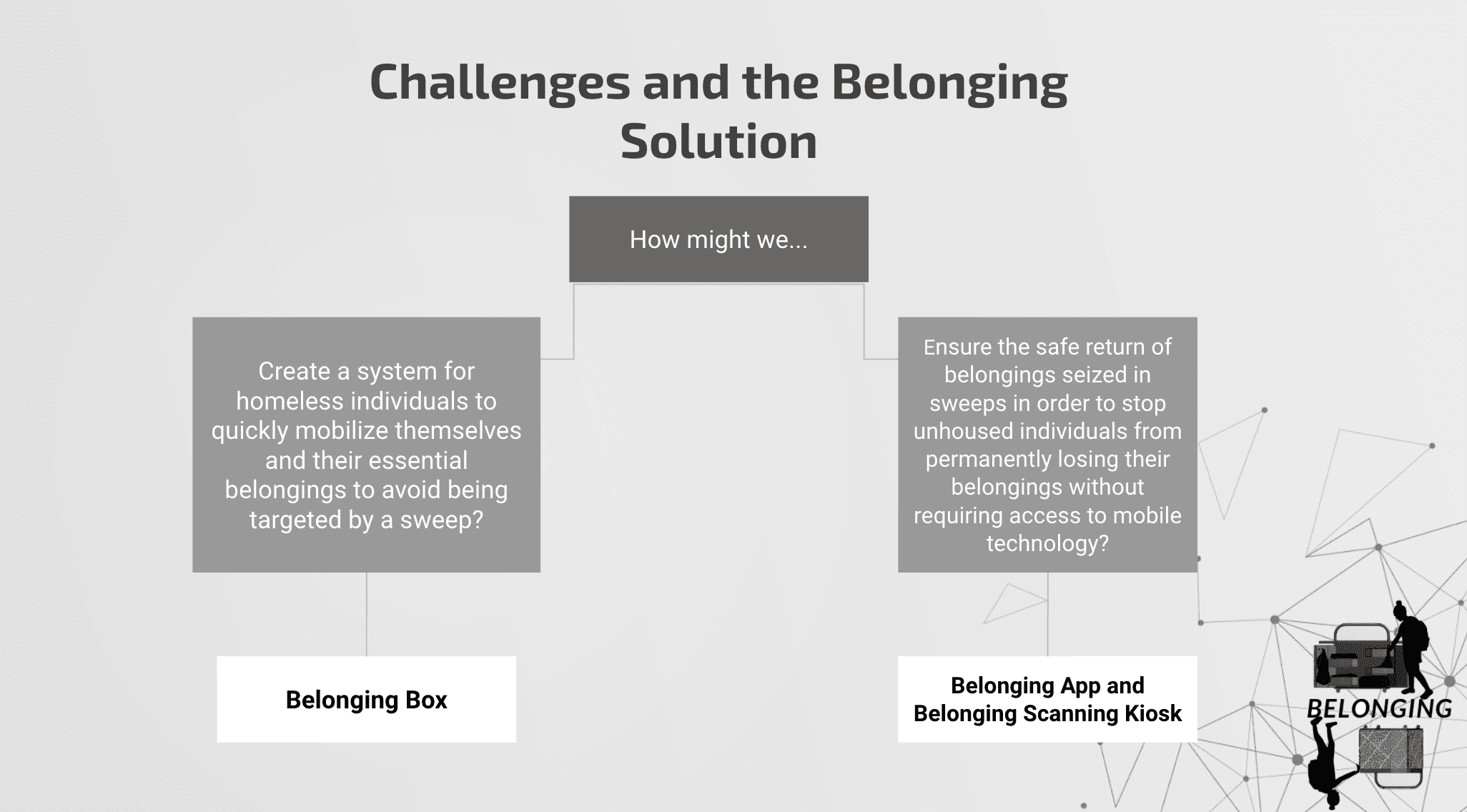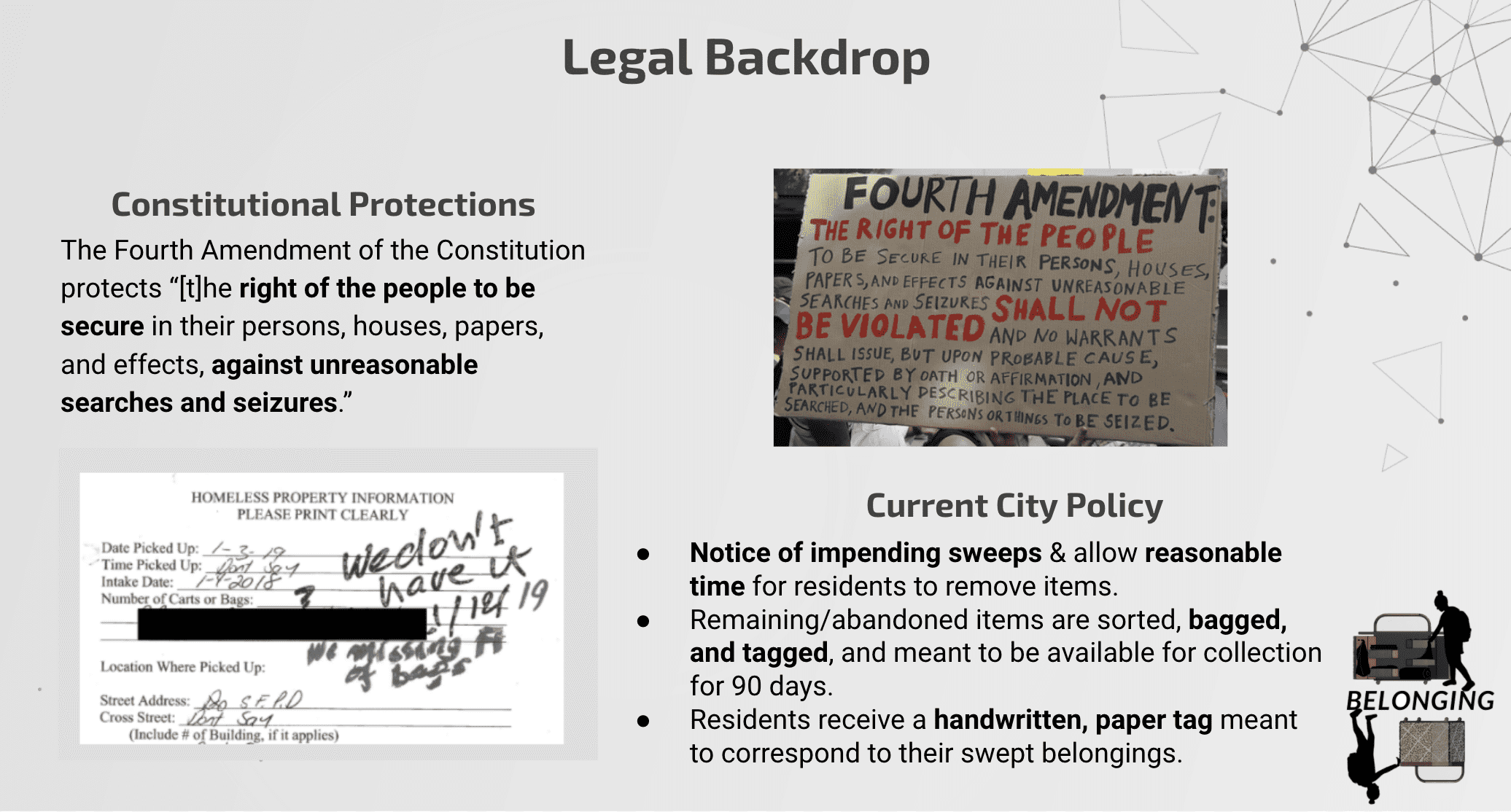Student Homelessness Project Competes in Statewide Finals
A proposal for protecting the belongings and dignity of people who are homeless, developed by seven UC Law SF students, has reached the finals of a statewide contest.
After being ranked among the top 8% of 354 entries in the University of California’s Big Ideas Contest, the team is now competing for a Grand Prize of up to $20,000. The winner will be announced in May.
“It’s very exciting,” said 2L Zehra Jafri, who developed the idea along with UC Law SF 2Ls Ram Bhadra, Bailey Maher, Kameelah Sims-Traylor, and Jagdeep Sekhon, and 3Ls Steven Balogh and Kelly Carson. “I never thought I would be going to law school and doing this.”
Their idea, called Belonging, would deploy secure wristbands to unlock storage units as well as scan and locate sentimental items for people who are homeless.
The students came up with Belonging in Alice Armitage’s “Access to Justice, Design Thinking, and Homelessness” course. The class is part of LexLab at UC Law SF’ Hack Homelessness initiative, which explores how technology and design might maximize the impact and accessibility of existing legal services for unhoused people, especially in San Francisco.

Slide from the Belonging team’s presentation pitch deck
In the course, students delve into different issues related to homelessness such as eviction, NIMBYism, and stolen belongings. They then take their expertise to the Hack Homelessness design challenge, which is open to the public and brings together lawyers, developers, designers, builders, and thinkers from around the world. Together with their larger teams, the students develop technology solutions that address a specific problem and present their final ideas to a panel of judges.
The Belonging project’s success as runner up in the design challenge gave the UC Law SF students the confidence to continue developing their idea. They built a multidisciplinary team that included students studying architecture and website/user interface design to enter the Big Ideas contest.
Jafri and the other law students on the team researched the privacy implications of the proposal, city policies, and constitutional protections against unreasonable searches and seizures under the Fourth Amendment.
Jafri, who is pursuing a career in intellectual property law, said she is grateful for Armitage’s multidisciplinary course, which gave her a glimpse into the kind of innovative and impactful work her law degree will allow her to do.
“This has been my favorite class. I recommend it to everyone,” said the Boston native. “I came to the Bay Area to be part of technology classes just like this one.”
